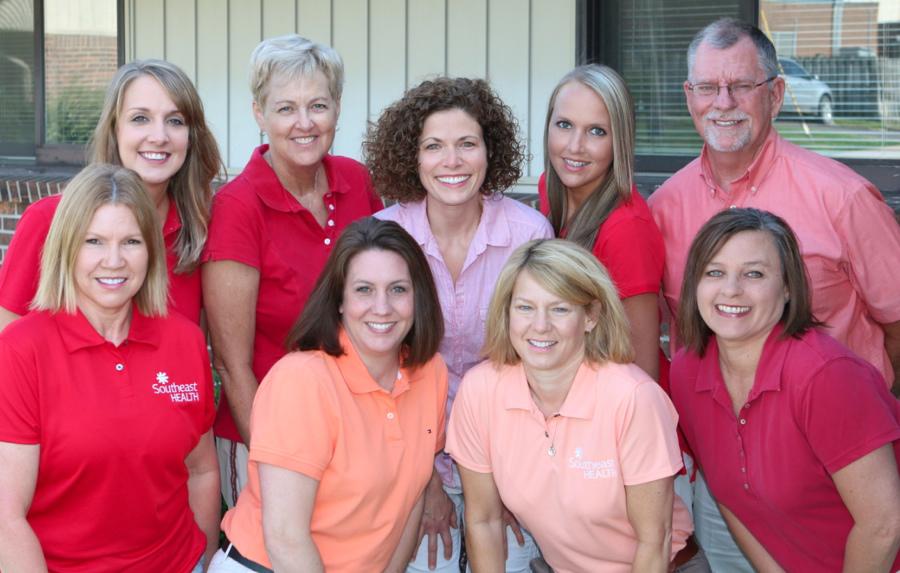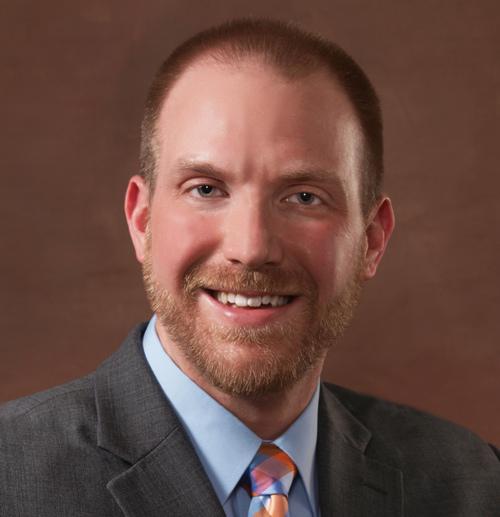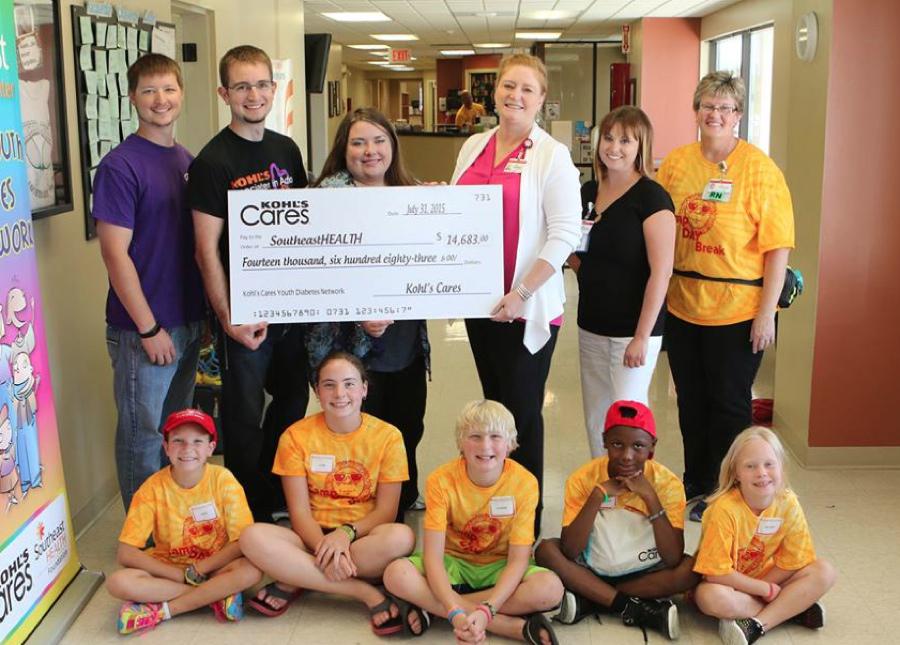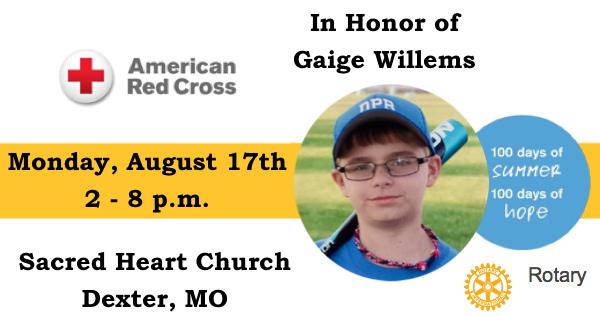
When it comes to Home Health Providers, there is a difference!
Established in 1983, Southeast Home Health of Dexter (formerly Dexter Home Health Agency) has served our area for nearly 35 years – longer than any other provider in the area.
Southeast Home Health of Dexter enables patients to remain where they feel most comfortable – at home – while still receiving many skilled therapy and rehabilitation services via in-home visits.
Home Health is a professional service provided to people who have a medical need which requires the skills of a nurse or therapist. Most patients who use home health are those who have recently been hospitalized and have a change in their condition or medicines, a new diagnosis, or those who have had surgery. Many people who require dressing changes can also benefit from home health services.
As part of SoutheastHEALTH’s regional system of care, transitioning from hospital to home health or vice versa is quicker, easier and ensures a true continuum of care. With access to the system’s extensive resources, including consultations with specialty departments, patients can feel confident they are receiving the best care possible.
Southeast Home Health of Dexter offers a number of services including skilled nursing, physical therapy, occupational therapy, speech pathology, and home health aide. Our staff is made up of experienced professionals that are dedicated to Southeast Home Health of Dexter and our community. There is a difference in home health providers. The difference is Southeast Home Health of Dexter.
Pictured is the Southeast Home Health of Dexter staff. Back row from left, Kristen Allen, RN; Terri Bennett, CCC-SLP; Sarah Guethle, OTR/L, CLT; Brandy Cannady, RN; Ron Moses, RN; Front row from left, Kim Moore, RN; Krystal McGowen, PTA; Tracy Hedrick, PT; Sherri Hann, Home Health Coordinator. Not pictured, Jennifer Stone, LPN.
Photo and article submitted by Amy Ellinghouse.


The Time is Now!
If you’re like many smokers and other tobacco users, you know you should quit. You just aren’t sure how to do it.
Creating a quit-tobacco plan may improve your chances of stopping for good. Having a plan helps prepare you for coping with the physical and emotional issues that often arise when you stop using tobacco, such as nicotine withdrawal and strong urges.
Join us for this free, one-hour class to learn more about the many options available to help you quit for good.
Classes will be held in Dexter on Thursday, August 27, 2015 at 6:00 p.m. in the Hospital Boardroom. To register for a class online, visit sehealth.org/tobacco


Jeffrey A. Biskup, DO, Anesthesiology, has joined the medical staff at Southeast Hospital. He is affiliated with Southeast Anesthesiology.
Dr. Biskup holds a Bachelor of Science degree from the University of Florida in Gainesville.
He received his DO degree from the Kansas City University of Medicine and Biosciences. Dr. Biskup completed an internship and residency in anesthesiology at Des Peres Hospital in St. Louis.
Dr. Biskup’s professional memberships include the American Osteopathic College of Anesthesiologists, the American Osteopathic Association and the American Society of Anesthesiologists.
About SoutheastHEALTH
At SoutheastHEALTH, the region's premier healthcare system in southeast Missouri, our patients receive excellent care of the highest clinical quality, close to home. Within our network are more than 50 care locations in 14 communities, including hospitals, primary and specialty care clinics representing over 30 clinical specialties and extending care for patients in a four-state area. Learn more at SEhealth.org.

We would like to thank Kohl's for their generous donation of $14,683 to the Youth Diabetes Care Network.
This donation will aid children with diabetes and provide such services as Camp DAY Break (Diabetes and Youth), diabetes training for school staff in the region, grandparent/caregiver workshops, and prevention and inpatient education.
Anna Ellinghouse, daughter of Dave and Amy Ellinghouse of Dexter is on first person sitting on the floor on the left.

Dexter, Missouri - The Rotary Club will host a Blood Drive on Monday, August 17th from 2 p.m. - 8 p.m. at Sacred Heart Church in Dexter. The Blood Drive is in honor of Gaige Willems who has defeated cancer twice and received a multitude of blood transfusions. Without your blood, they could not have saved his life.
The American Red Cross is facing a looming shortage of the blood types most needed by patients and is calling on eligible donors with O negative, B negative and A negative blood to give now to prevent an emergency situation. Blood donation appointments can be quickly and easily scheduled by using the Red Cross Blood Donor App, visiting redcrossblood.org or calling 1-800-RED CROSS.
Overall blood donations in the Red Cross Missouri-Illinois Blood Services Region have been approximately 3,000 fewer per month in June and July this year than the previous 10 months of the year. When demand for the most needed types begins to outpace donations, the Red Cross alerts donors to help restock the shelves.
Type O negative is the universal blood type and can be transfused to patients with any blood type. Types B negative and A negative can be transfused to Rh positive or negative patients. Eligible donors are encouraged to donate double red cells – a process where two units of red cells are collected while most of the plasma and platelets are returned to the donor – where available.
“Summer blood shortages are not uncommon, but they can be prevented when generous volunteers roll up their sleeves to help save lives,” said Todd Wagner, donor recruitment director for the Red Cross Missouri-Illinois Region. “Many donors have already given this summer. We’re now asking donors who haven’t donated, and those who are eligible again, to make an appointment to give now to help ensure blood products are available for patients.”
Platelets and type AB plasma also needed
Platelet donors and those with type AB blood are also continually needed to help ensure patients receive the lifesaving blood products they need. Platelets – a key clotting component of blood often needed by cancer patients, surgical patients and bone narrow recipients – must be transfused within five days of donation, so donations are constantly needed. Donors with type AB blood are urged to give blood or platelets to restock the plasma supply. Type AB donors have the universal plasma type, which can be given to patients of all blood types.
Individuals who donated blood earlier this summer may be eligible to donate again and help patients like an expectant mother at a Red Cross-supported hospital who is currently receiving nearly 100 units of blood products a week until she delivers. Her need alone could add up to 1,100 units.
How to donate blood
The free Blood Donor App – available in app stores by searching for American Red Cross or by texting BLOODAPP to 90999 – not only makes appointment scheduling easy, but donors can also access their digital donor card and be notified when their donation is distributed to a hospital. Donors can also visit redcrossblood.org or call 1-800-RED CROSS (1-800-733-2767) to make an appointment or for more information. All blood types are needed to ensure a reliable supply for patients. A blood donor card or driver’s license or two other forms of identification are required at check-in. Individuals who are 17 years of age (16 with parental consent in some states), weigh at least 110 pounds and are in generally good health may be eligible to donate blood. High school students and other donors 18 years of age and younger also have to meet certain height and weight requirements.
Blood donors in the Missouri-Illinois Blood Services Region can now save time at their next donation by using RapidPass to complete their pre-donation reading and health history questionnaire online, on the day of their donation, prior to arriving at the blood drive. To get started and learn more, visit redcrossblood.org/RapidPass and follow the instructions on the site.
About the American Red Cross
The American Red Cross shelters, feeds and provides emotional support to victims of disasters; supplies about 40 percent of the nation’s blood; teaches skills that save lives; provides international humanitarian aid; and supports military members and their families. The Red Cross is a not-for-profit organization that depends on volunteers and the generosity of the American public to perform its mission. For more information, please visit redcross.org or visit us on Twitter at @RedCross.

